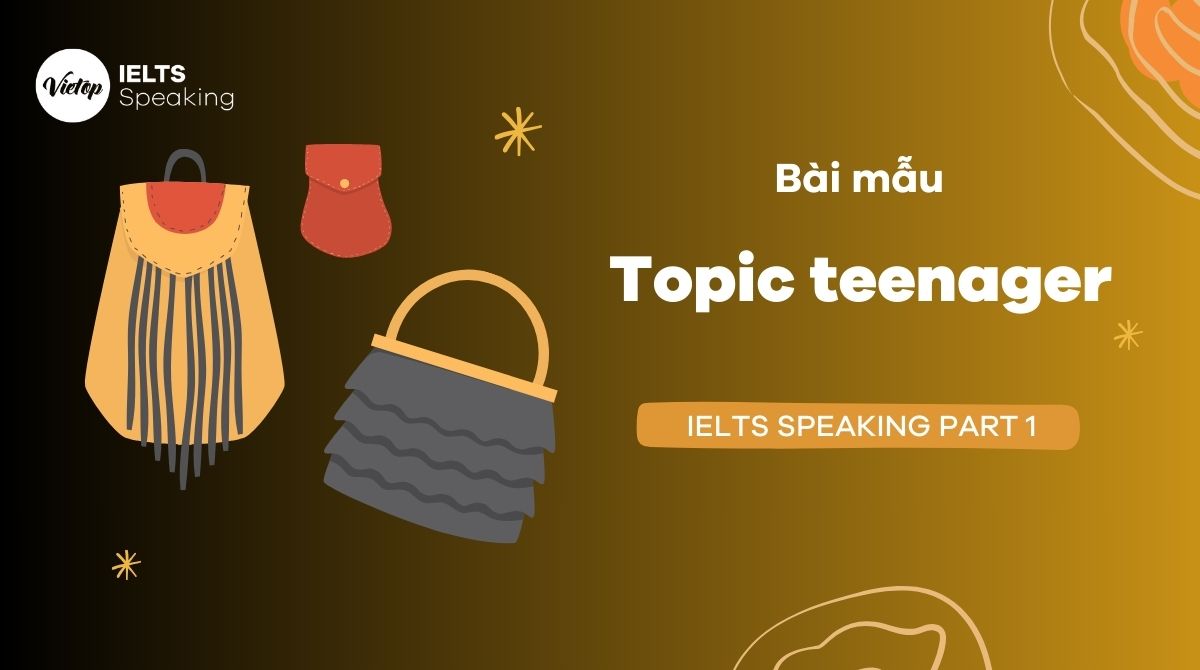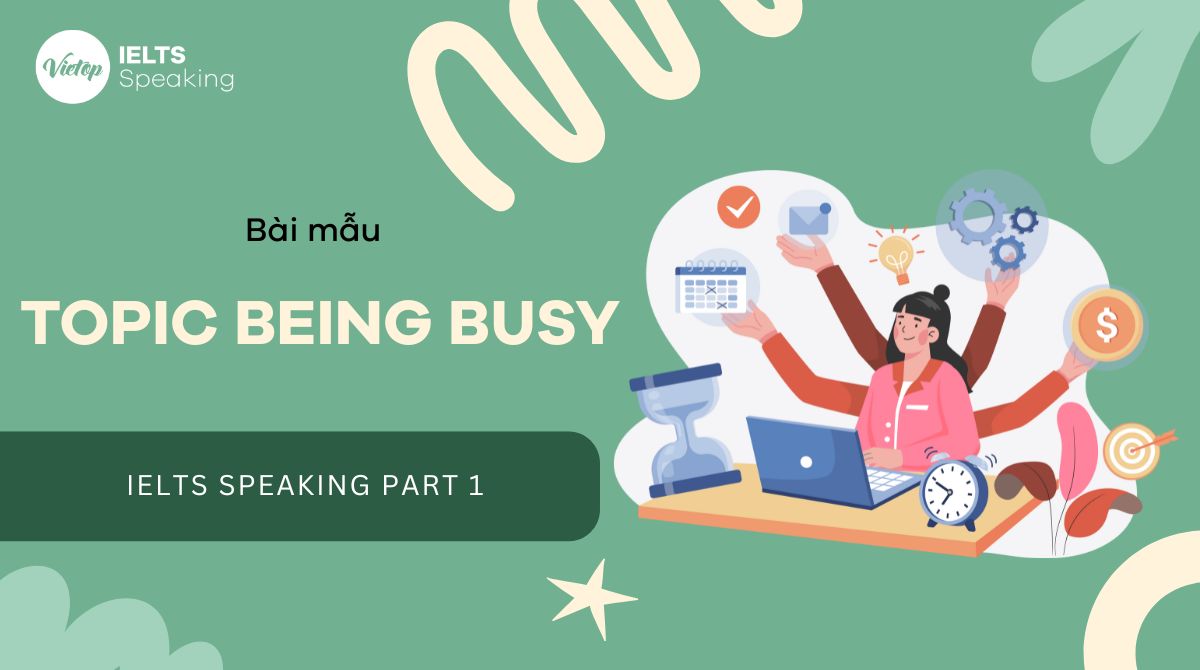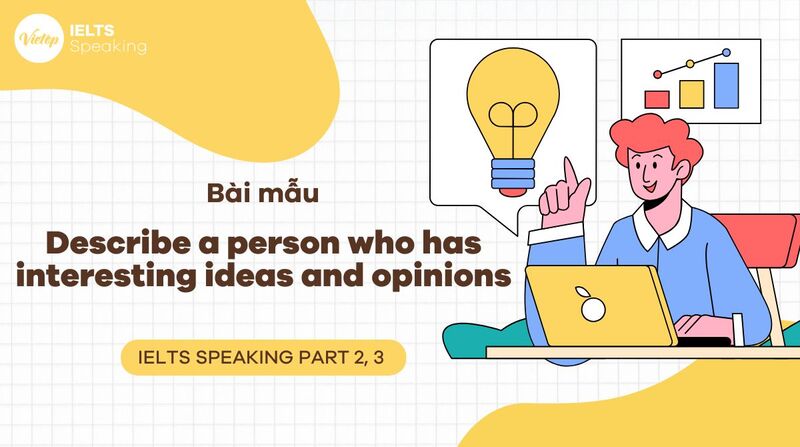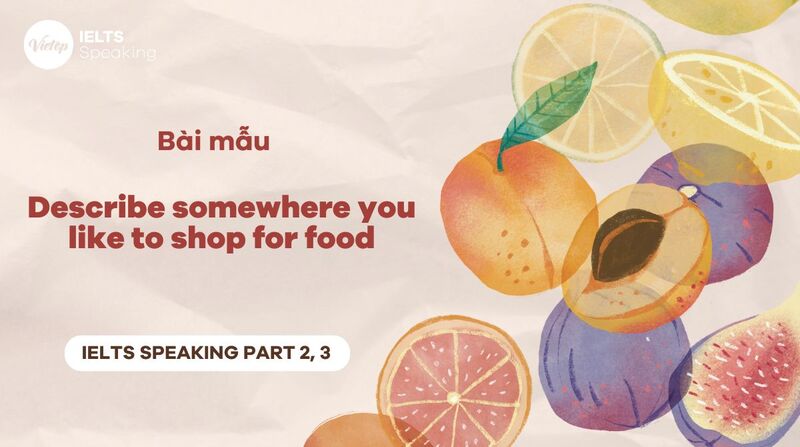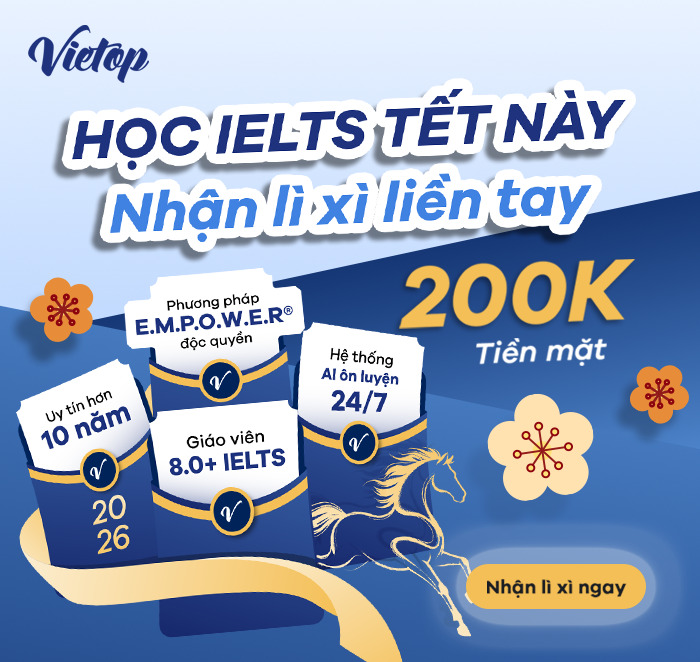Luyện thi Vietop English gửi đến các sĩ tử bài mẫu giải đề IELTS Speaking ngày 05/01/2022 “khai xuân” đầu năm. Cùng tham khảo và lưu lại cấu trúc để áp dụng cho phần thi IELTS Speaking của mình nhé.
![[ACE THE TEST] Giải đề IELTS Speaking ngày 05/01/2022 - Hướng dẫn chi tiết](https://vietop.edu.vn/wp-content/uploads/2022/02/THUMB-01-01.png)
IELTS Speaking part 1
Work or Study
- What subject are you studying?
- What are your favorite subjects at university?
- What are your future study plans?
Xem bài giải chi tiết tại đây: Topic Study – IELTS Speaking Part 1
Phone applications
- What kinds of apps do you like?
- What was the first app you used?
- What apps have you recently used?
- What kinds of apps would you like to use in the future?
Xem bài giải topic Phone Applications tại đây:
TV Program
- What kind of TV programs do you like?
- What do children like watching on TV?
- Has television changed your life in any way?
Xem bài giải topic TV Program tại đây: Topic TV programs – IELTS Speaking part 1
IELTS Speaking Part 2: Describe an activity you usually do that wastes your time
IELTS Speaking Part 2 – You should say:
- What it is
- When you usually do it
- Why you do it
And explain why you think it wastes your time
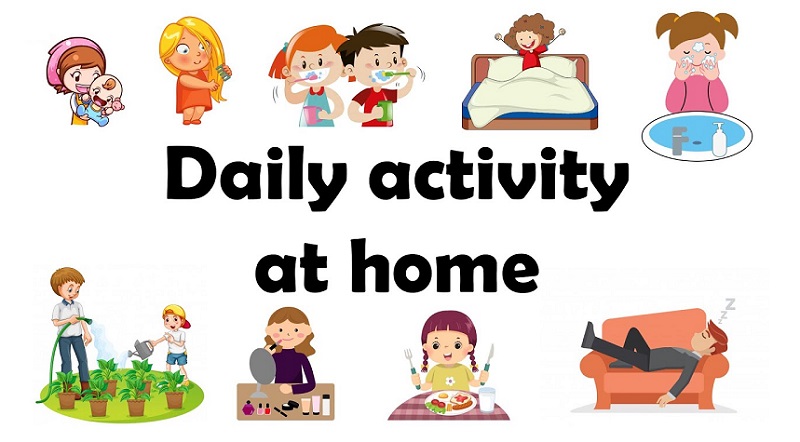
Sample
Speaking of a particular daily activity that is extremely time-wasting, I would say it is scrolling through my mobile phone to use social media.
Checking and scrolling through social media has become an increasingly popular activity over the past decades, to a point that most people, and myself included, consider it an ingrained habit.
Facebook, Instagram, and Tiktok have always been the most frequently-used applications on my phone, and I just can’t help logging into my accounts as soon as I open my eyes in the morning, and every night before bed, to keep myself updated about my virtual friends, as well as to share with them my daily experiences. There is also a never-ending list of videos and funny posts which make me completely lose track of time, resulting in me constantly procrastinating the tasks at hand.
As to why I make use of these social media platforms regularly, despite being aware of how it might be to my mental health, I guess it goes down to the fact that when getting a notification, such as a like or mention, I receive a sense of well-being. They provide an endless amount of immediate rewards in the form of attention from others for relatively minimal effort.
It feels like my brain rewires itself through this positive reinforcement, making me desire likes, retweets, and emoticon reactions. When my phone is not around, I often feel disconnected from the outside world and begin to fidget by whether playing with my hair or bouncing my leg repeatedly.
Though I am fully aware of how much time I fritter away due to social media, I just can’t refrain from using it so often. I’m doing my utmost to replace this habit with a healthier one, such as reading a book or painting a picture, but I still have a long way to go.
- Scroll through (v): lướt (điện thoại)
- Ingrained habit (n): thói quen khó bỏ
- Keep oneself updated about s.th: cập nhật thông tin
- Virtual friend (n): bạn trên mạng
- Procrastinate (v): trì hoãn
- Sense of well-being (n): cảm giác hạnh phúc, vui sướng
- Reinforcement (n): sự củng cố
- Fidget (v): cựa quậy, sốt ruột
- Fritter away (v): lãng phí
- Do one’s utmost: cố gắng hết sức
→ Bài nói miêu tả việc sử dụng điện thoại để lướt MXH quá thường xuyên, dẫn đến sự tiêu tốn rất nhiều thời gian. Luôn bám sát vào các câu hỏi gợi ý (What: scrolling through social media, Facebook, Instagram, Tiktok,…; When: as soon as I open my eyes in the morning, and every night before bed; Why: receive a sense of well-being; phone is not around, I often feel disconnected…) và lồng ghép các collocation liên quan đến chủ đề: scroll through, fritter away,…
Audio
Xem thêm:
IELTS Speaking part 3: Time management

Sample
1. How can people balance life and work?
The way I see it, there are several ways to achieve a life-work balance in the hustle and bustle of urban life. I think it is best to plan ahead to combine work activities with leisure, social, or fitness activities. If people find themselves having virtual meetings back-to-back, for example, they can try taking them while they go for a walk around the office.
Another method one can adopt is to end work at a certain time. It is believed that work expands to fill the time allotted, so setting a time to end work for the day and powering down work-related devices is essential to lead a well-balanced lifestyle.
- Hustle and bustle (n): sự xô bồ
- Back-to-back (adj): liền kề, liên tiếp
- Well-balanced (adj): cân bằng
→ Gợi ý một vài cách giúp cân bằng cuộc sống (tập thể dục nhẹ trong lúc họp online, đặt thời gian làm việc cụ thể,…) và kèm theo giải thích lý do vì sao. Khi chuyển ý cần các từ chỉ dẫn để giúp định hướng người đọc theo mạch nói.
Xem thêm: Bảng chữ cái tiếng Anh và cách phát âm chuẩn Audio
2. What usually makes people feel pressured?
There are a lot of things putting people under a lot of stress and strain, in different stages of their lives. A high school student, let’s say, would have to face the mental health toll of academic pressure, which derives from their parents’ expectation to outshine their peers in class and pass every exam with flying colors.
People in the workforce, however, are constantly pressurized with a heavy burden of work while bending over backward to make a proper living for themselves and their families. There would always be something for people to be worried about, to tell the truth.
- Derive from (v): xuất phát từ
- Outshine (v): nổi trội hơn
- Heavy burden of work (n): gánh nặng công việc
- Bend over backward: cố gắng hết sức
→ Phân tích các áp lực con người gặp phải tuỳ theo độ tuổi, sau đó kết lại bằng việc khẳng định mọi người đều có những căng thẳng, áp lực riêng. Giữa các ý có liên từ “however” giúp tăng sự đối lập.
Xem ngay: Khóa học IELTS 1 kèm 1 – Chỉ 1 thầy và 1 trò chắc chắn đạt điểm đầu ra
3. Why do young people waste more time?
Wow, this is a big question, actually. There could be several explanations for this, but I believe the most important reason is that young people tend to underestimate the value of time. They may believe that they have an entire life ahead of them and that spending a day is not a big deal. Others, in addition, may not discover their life’s purpose, and when they don’t have something to focus on or devote time to, it is very likely for them to fritter away all their time on senseless things.
- Underestimate (v): đánh giá thấp
- Fritter away (v): tiêu tốn, lãng phí
→ Người trẻ thường có xu hướng nghĩ rằng họ có nhiều thời gian, do đó không biết quý trọng; Bên cạnh đó việc không có mục đích, mục tiêu trong cuộc sống sẽ làm người ta lãng phí thời gian vô ích. Mỗi luận điểm lớn đi kèm với những luận cứ theo sau để giải thích.
4. What kinds of activities do you consider a waste of time?
To my way of thinking, one of the most time-wasting activities would probably be the excessive use of social media. Nowadays hardly anyone can resist the temptation of Facebook or Instagram, a place where people can receive an endless amount of immediate rewards in the form of attention from others for relatively minimal effort.
People are constantly seeking acclamation from others when talking about great jobs, excellent partners, beautiful homes and feeling happy or inspired as a result. Being deeply immersed in these platforms, however, can lead to people losing track of time and goofing off their work or study. Additionally, people can also waste a lot of their precious time on a bad movie, a toxic relationship or unnecessary chatting, to name but a few.
- Temptation (n): cám dỗ
- Lose track of time: mất nhận thức về thời gian
- Goof off (v): né tránh (việc)
→ Dạng câu hỏi liệt kê có thể liệt kê 1 luận điểm lớn sau đó đưa ra luận cứ bổ sung để làm rõ ý nghĩa. Sau đó có thể liệt kê thêm 2 – 3 sự lựa chọn khác (có hoặc không có giải thích).
Audio
Xem thêm:
Bài mẫu Topic Puzzle – IELTS Speaking Part 1,2, 3
Trên đây là bài mẫu đề IELTS Speaking ngày 05/01/2022, hy vọng bài mẫu trên sẽ giúp bạn có thêm nhiều ý tưởng, từ vựng để hoàn thành bài thi tốt hơn. Chúc bạn học IELTS thật chăm và đạt được kết quả thật tốt nhé!
Xem thêm các Giải đề IELTS Speaking khác:
Giải đề IELTS Speaking ngày 09/01/2022
Giải đề IELTS Speaking ngày 13/01/2022

